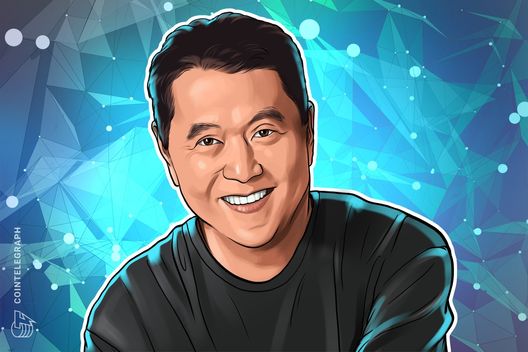

Robert Kiyosaki, the author of "Rich Dad Poor Dad," has once again sparked discussion among investors with his recent warnings about the risks associated with gold, silver, and Bitcoin ETFs. While acknowledging the convenience these exchange-traded funds offer to the average investor, Kiyosaki cautions against relying solely on them, emphasizing the importance of understanding the distinction between paper assets and physical ownership.
In a recent post on X, Kiyosaki likened owning a Bitcoin ETF to "having a picture of a gun for self-defense," suggesting that while they might appear beneficial, they lack the real protection offered by owning the underlying asset. He recommends gold, silver, and Bitcoin ETFs for the average investor but stresses the importance of knowing when it is best to hold the real asset versus its paper-backed counterpart.
Kiyosaki's concern stems from the fact that ETFs do not confer true ownership. Bitcoin ETFs, for example, typically hold the cryptocurrency in third-party accounts, preventing investors from having direct wallet control. This introduces counterparty risks and dependence on financial intermediaries, potentially exposing investors to vulnerabilities during regulatory shifts or market disruptions. He argues that investors may overestimate their exposure to Bitcoin through ETFs, as these funds abstract away the complexities of asset management, liquidity, and custody.
He has previously described ETFs as "fake," likening them to the U.S. dollar and government bonds, which he believes are detached from tangible value. While now acknowledging the role ETFs play, his core concern remains unchanged: they don't offer real ownership or protection in times of crisis.
Kiyosaki's advice aligns with his long-standing advocacy for investing in real assets like real estate, precious metals, and commodities. Unlike paper assets like stocks and bonds, real assets have intrinsic value and can act as a hedge against inflation. He often refers to gold and silver as "God's money" because of their historical stability. He recommends holding physical gold and silver as a hedge against inflation and economic crises.
His skepticism towards ETFs also reflects his distrust of fiat monetary systems and pessimism regarding the future of global finance. He has warned of an imminent financial crash and criticized the Federal Reserve's money-printing policies, urging investors to protect themselves by acquiring tangible assets. He believes that the financial system is headed for turmoil.
Despite his warnings, Kiyosaki acknowledges that ETFs can be a useful tool for the average investor, making it easier to gain exposure to assets like gold, silver, and Bitcoin. However, he stresses the importance of financial education and understanding the risks involved. He advises investors to "know the differences, and how to use them," implying that those who understand the nuances of ETFs and their limitations can use them effectively as part of a broader investment strategy.
Kiyosaki's investment tips are not just about making money—they're about building a mindset that fosters financial independence and long-term success. He encourages investors to focus on financial education, invest in assets that generate cash flow, and use leverage wisely. He also emphasizes the importance of investing in oneself, developing skills and knowledge, and building a strong financial foundation.